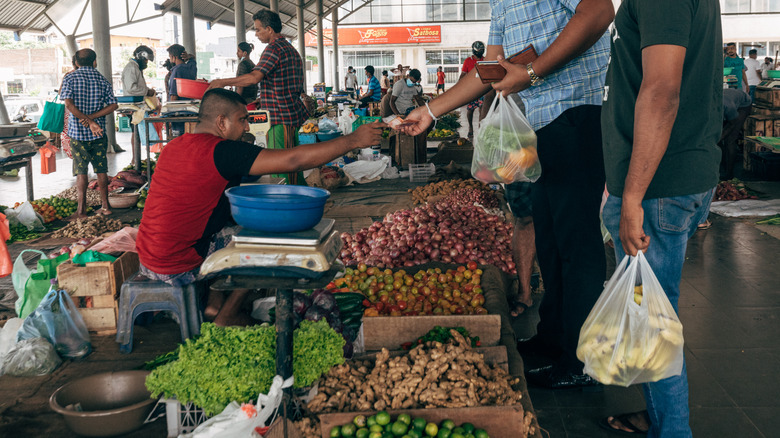How A 4-Day Work Week Could Help Sri Lanka's Food Crisis
Sri Lanka has announced an unusual solution to its food and fuel shortages: working less.
According to Reuters, a foreign exchange shortage has left the country in economic crisis. As a result, the island nation has not been able to afford many of its imported essentials (such as food and medicine, to name just a couple). Now, Sri Lanka's residents are facing hours-long lines at gas stations, power cuts, and a looming food shortage.
Per a report published by the United Nations last week, 5.7 million of the country's nearly 22 million citizens are in need of "immediate humanitarian assistance" due to shortages of food, energy, work, and medical care. The crisis can be attributed to several factors, including the ongoing COVID-19 pandemic, the war in Ukraine, and currency depreciation. Sri Lanka also experienced a disappointing harvest season, yielding 40% to 50% less than the year prior. In response, many have been forced to skip meals, eat less, or replace aspects of their diets with cheaper alternatives.
How will a 4-day work week help Sri Lanka's financial crisis?
On June 13, Sri Lanka's cabinet approved a plan to mitigate some of these issues by an unexpected means: The country's one million public employees will follow a four-day work week for the next three months, reported Reuters. In doing so, the government hopes to ease demand for fuel, as people will only need to commute to and from their jobs four times each week.
Additionally, the government is hoping that the new policy will encourage people to grow their own food, protecting them against rising costs and future shortages. Explained the government information office in a statement, per Reuters: "It seems appropriate to grant government officials leave of one working day ... to engage in agricultural activities in their backyards or elsewhere as a solution to the food shortage that is expected."
Those affected by the new policy will have every Friday off for the next three months — but their pay will remain the same as when they worked full-time, reported Al Jazeera. Notably, the country's "essential services" workers will be excluded from participating in the four-day workweek.
Should they want to search for work abroad, any of the country's public employees will be granted up to five years of unpaid leave, without it impacting their employment status and benefits. In doing so, the government is hoping to increase the amount of foreign currency being sent to the island, said Al Jazeera.

